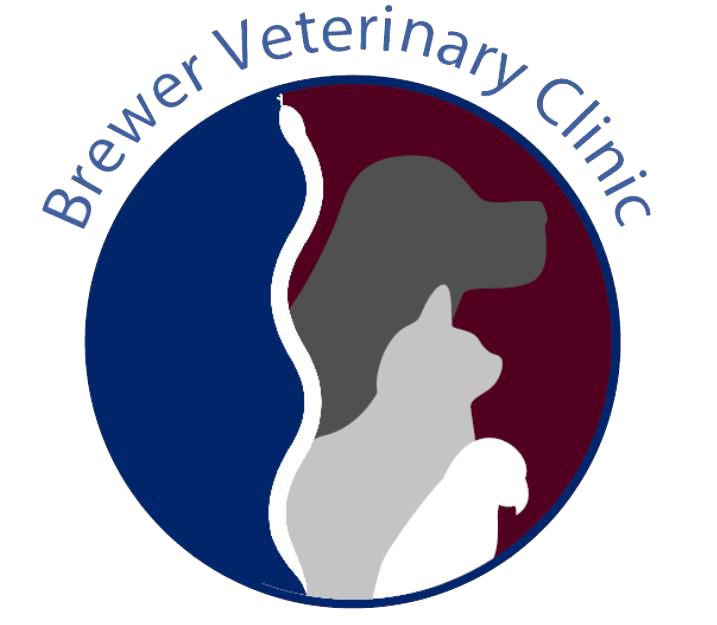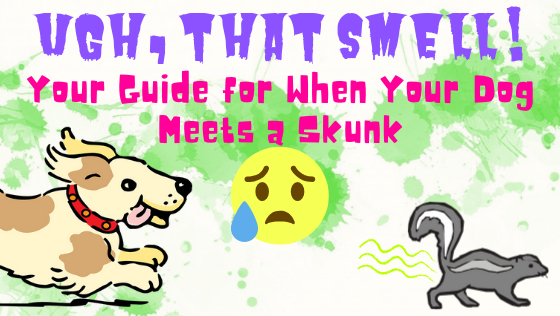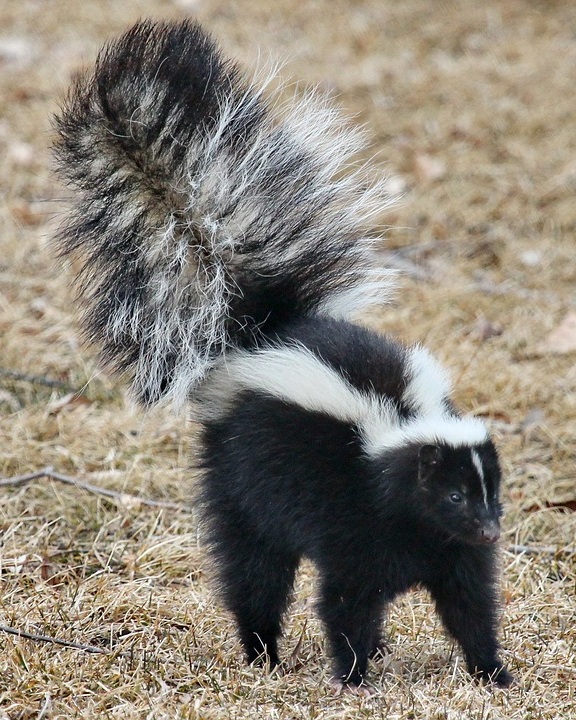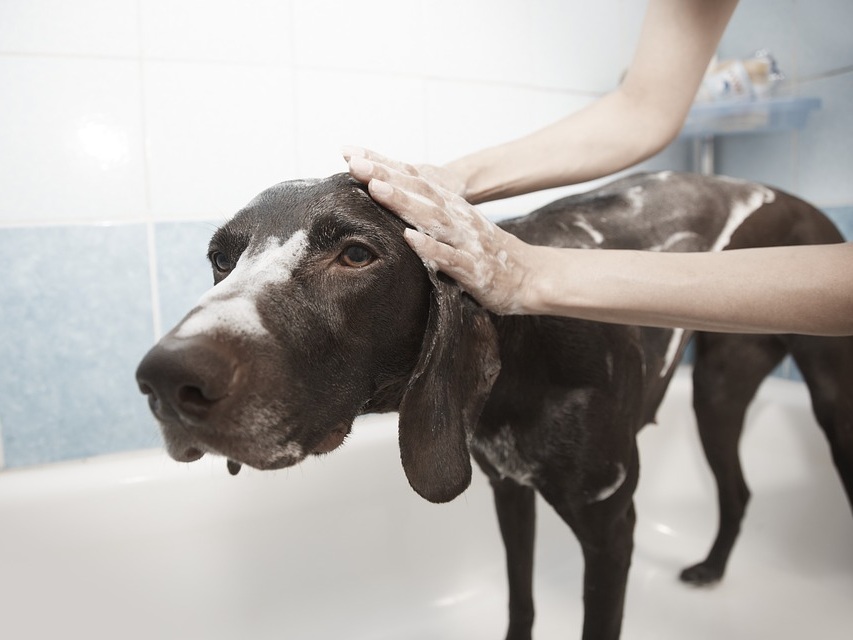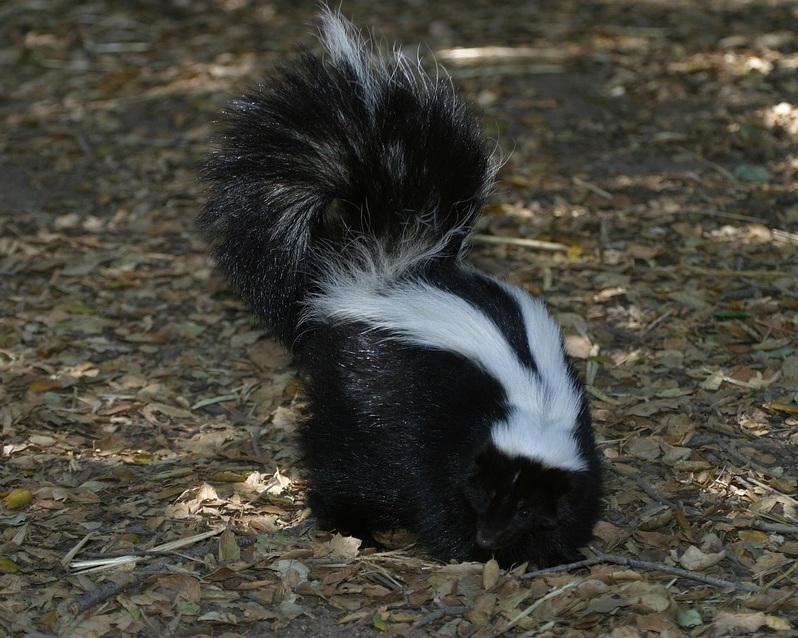There are many different smells we associate with summer time in Maine - campfires, salt air, pier fries, and fresh cut grass. While those smells have pleasant memories attached to them, there are other smells native to summer that don’t, and the smell of a skunk is one of them!
Spring and summer are the times we get distressed owners calling about their dogs who just tried to make friends with skunk. Most times, the skunk doesn’t want to be friends and their dog gets blasted in the face with a spray that is gag-inducing for everyone. So, what do you do to help with the smell? And how can you prevent it from happening again? Let’s learn a little bit more about our stinky friends to find out how!
Skunks 101
Skunks are a common critter in Maine, and they adapt very well to their environments. They survive well in the woods, and they survive well in more developed areas too. Skunks require very little to survive, as long as they have shelter, such as an underground hole, a stump, or a porch to hide under. They stay close to food sources, turning a neighborhood with plenty of garbage cans to raid into a skunk’s all-you-can-eat buffet.
Skunks are most active in the spring and summer months because of mating season and foraging for food, but less active in the late fall and winter. Skunks don’t hibernate as they come out during warmer winter days, but they stay relatively inactive during periods of cold and snow.
Ooh, That Smell
Skunk spray in the air is bad enough, but direct skunk spray is a whole new level of gross. What makes the skunk spray so pungent, and why does it seem to linger forever?
Skunk spray comes from two anal sacs that are expressed when a skunk feels scared or threatened, and they can spray those threats from up to 15 feet away! The spray is a yellow mixture of several different compounds, but the most important piece to this puzzle is oil. The make up of this particular oil cements itself to skin proteins, and, as you know, water and oil don’t mix, which makes skunk spray especially difficult to wash off. This is also the reason why the smell gets stronger and comes back whenever your dog gets wet. It really is the perfect defense mechanism for the skunk, but a nightmare for dogs and dog owners.
Can’t You Smell That Smell (Because Honestly… Who Can’t?)
Your dog just got sprayed and you have questions. How do I get rid of the smell? Will the spray hurt my dog? Does tomato juice really work?
The best thing to do is to give your dog a bath ASAP. The longer the skunk spray is on your dog, the more difficult it will be to wash it from your dog’s skin. There are plenty of commercial skunk odor removers available at the pet stores, but the following recipe can be made from 3 common household products:
1 quart hydrogen peroxide (no more than 3%) - acts as an oxidizer
1 tsp. Dawn dish soap - acts like a de-greaser
1/4 cup baking soda - acts as an oxidizer
Mix all ingredients together, let the mixture soak in for a few minutes, then rinse well. Don’t let the mixture soak for too long or else the peroxide can bleach your dog’s hair and irritate skin. Avoid getting the mixture in your dog’s eyes. This will make cleaning the face more difficult and you may not be able to totally rid your dog of the smell if they got sprayed directly in the face.
It’s best to bathe your dog outside in a driveway or garage, unless you want the skunk smell in your home. Towel dry your dog - don’t use a blow dryer as it can dry out your dog’s skin. Let any remaining moisture dry naturally.
It’s also important to mention that you should never keep any leftover mixture or make it ahead of time to store. If you remember anything from elementary science class, hydrogen peroxide and baking soda are very reactive and shouldn’t be kept in sealed containers after being mixed.
How to Prevent a Dog/Skunk Meeting
Skunks are nocturnal animals who are most active around dusk and dawn, but it’s not unheard of to see them foraging for food during the day too. You may be privy to a skunk being in the area by being able to smell them first, but this isn’t always the case. Keeping your dog on a leash between dusk and dawn is the most effective precaution you can take to prevent any possible encounters.
When To Call a Veterinarian
For the most part, getting sprayed by a skunk is just a smelly situation, but if your dog gets sprayed directly in the eyes or mouth, you may notice some eye irritation or vomiting (skunk spray smells bad enough, but I can’t imagine how bad it tastes). Flushing your dog’s eyes will help with any irritation. If any vomiting persists after your dog gets sprayed, pick up the phone and call your vet. Like raccoons, skunks are carriers of rabies, so if you are unsure on whether or not your dog may have also been bitten, call your veterinarian immediately.
Of course, if you need any helpful tips or tricks after a dog/skunk encounter to help you get through the painfully smelly bathing process, our friendly staff is always here to psych you up and be your personal cheerleaders!
